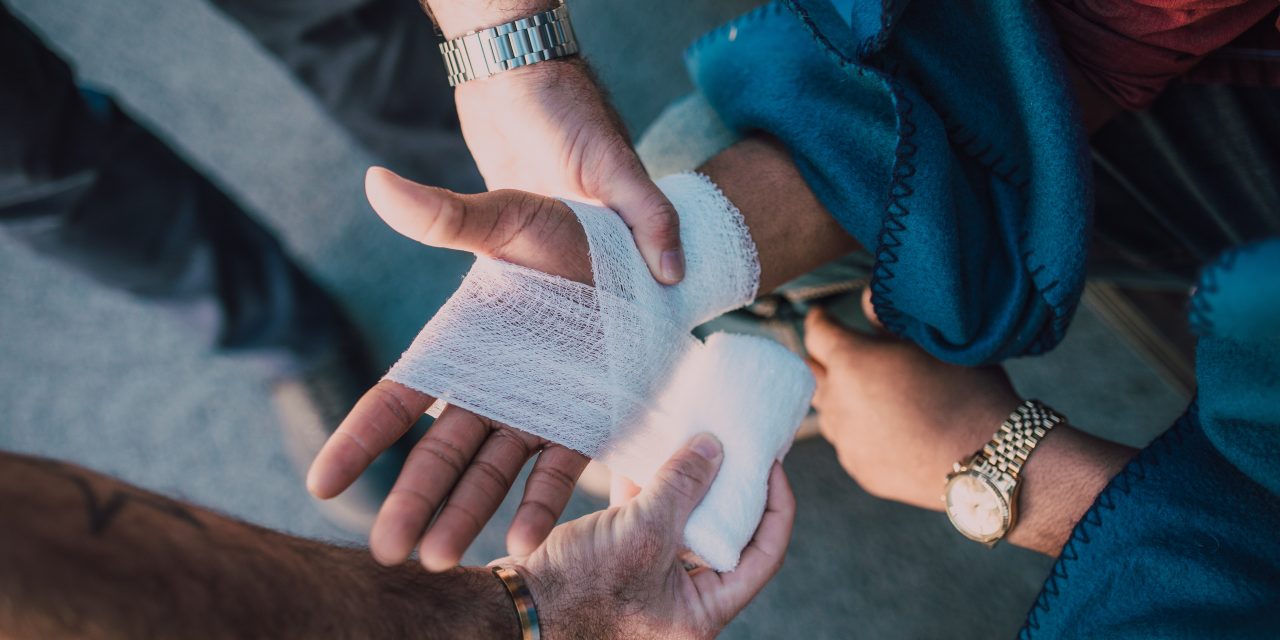Staying safe at a hotel is essential for all types of travelers, especially those who plan to stay in one for an extended period. Fire safety regulations and insurance policies are just two of the key points visitors need to be aware of before booking a room.
At Blumenshine Law Group we understand the importance of knowing how to safeguard against incidents and injuries during hotel stays. That’s why we’ve put together this guide on the key information travelers should consider before booking a room at any accommodation facility. We’ll cover everything from fire safety regulations to understanding insurance policies, as well as provide tips on how best to deal with any issues if something does go wrong while you’re visiting. So join us now as we explore the importance of knowing how to stay safe and secure when staying in a hotel!
Understanding Your Hotel’s Safety Policies
It is essential for hotel managers to be aware of the safety policies within their establishment. After all, it’s important that they are adequately prepared in safeguarding against any incidents or injuries that may occur while guests stay at their property. To begin with, a thorough understanding of these policies should be established so they can effectively protect both employees and customers alike.
One way to ensure this knowledge is properly acquired by staff members is to provide an adequate amount of training on safety practices before allowing them to work independently. This could include teaching about evacuation plans, first aid protocols, and general emergency procedures such as how to handle hazardous material spills or fire hazards.
Additionally, it might also cover more specific topics like identifying suspicious activity from guests and reporting dangerous behavior. All of these measures will help create a safer working environment for everyone involved.
By familiarizing themselves with safety policies beforehand, hotel personnel can better identify potential risks associated with certain areas or activities around the premises and take action accordingly.
Doing so not only encourages responsible decision-making but also helps set expectations among staff regarding expected behaviors when dealing with guest requests or inquiries – providing a higher level of assurance for visitors staying in the facility.
As such, equipping yourself with the proper information prior to engaging in any duties related to hospitality management is vital in maintaining safe operations throughout your hotel’s day-to-day operations. With that being said, let’s move onto identifying potential hazards in your rooms next.
Identifying Potential Hazards In Your Room
Identifying potential hazards in your hotel room is like playing a game of I Spy; you never know what might be lurking around the corner. It’s important to take some time and really look around, as identifying any issues before they become an incident can save everyone involved a lot of trouble down the line.
During this exercise, pay attention to the physical features of each room that could potentially cause injury or harm such as frayed carpets, broken furniture, uneven steps, and missing railings near stairs. Additionally, make sure there are smoke detectors present and functioning properly throughout all areas of the hotel building.
It’s also essential for staff members to check for any electrical hazards such as power cords with exposed wires, overloaded outlets, and faulty wiring. These types of problems can not only lead to dangerous situations but should also be reported immediately if found during inspection.
Finally, it’s important to keep an eye out for anything that may pose safety risks related to fire protection or other emergency processes while ensuring hotel guests understand all communal policies in regards to their own wellbeing while staying at the property. With these measures taken care of we can now move on to how best stay informed on local crime rates when visiting unfamiliar destinations.
Staying Informed On Local Crime Rates
Staying informed on local crime rates is an important part of safeguarding against hotel incidents and injuries. Knowing the areas that are safer or more dangerous can help you make better decisions as to what routes to take, where to stay, and other activities you may want to participate in while traveling. You should research your destination well before you leave home, including checking sites such as FBI crime reports or local news articles for any recent criminal activity.
Additionally, it’s advisable to check with the hotel or rental agency about safety precautions they have in place for their guests. Ask if there are cameras installed throughout the property, locks on all bedroom doors, and a security guard at night.
Also inquire if there is a designated staff member who can be contacted in case of emergency. If available, consider signing up for text alerts from local law enforcement agencies so that you will be made aware of any urgent warnings or advisories related to public safety threats.
By taking these steps ahead of time and being mindful of potential risks during your travels, you can start your trip off right with peace of mind knowing that you’re prepared should anything happen. As we move into discussing how to take extra precautions when traveling alone…
Taking Precautions When Traveling Alone
As the adage goes, “better safe than sorry”. This is especially true when it comes to taking precautions when traveling alone in a hotel. It can be an enjoyable experience but it’s important to stay vigilant and aware of your surroundings at all times.
First, always make sure you know where you are going and what kind of neighborhood or area you will be staying in.
https://unsplash.com/photos/g5ZIXjzRGds
Check local crime rates online so that you have a better idea of how safe the area is before making any commitments.
Researching ahead of time can also give insight on if there are any safety concerns specific to where you’re staying such as loud parties nearby, unsafe public transportation options, etc.
It is also smart to take extra steps when travelling alone to ensure personal safety both inside and outside the hotel. Always keep doors locked while inside your room and never let strangers into your space without knowing who they are first. If possible, avoid being out late at night and stay within well-lit areas as much as you can.
Additionally, try not to share details about travel plans with unknown people or post information publicly online until after returning from the trip for added security measures.
Taking these additional steps before and during solo travel helps create a sense of comfort that allows travelers to enjoy their trip away from home peacefully knowing their safety has been taken into consideration prior to arriving at their destination.
With this knowledge under their belt, visitors can now move onto understanding the hotel’s liability coverage regarding safeguarding against incidents and injuries for full peace of mind during their stay.
Understanding The Hotel’s Liability Coverage
When traveling alone, it is important to understand the hotel’s liability coverage. Hotels are legally responsible for providing a safe environment, and they offer insurance policies that protect them in case of an incident or injury on their premises. Knowing what kind of coverage your hotel has can help you feel secure while staying at the property.
It is also wise to double-check with the front desk about any additional safety measures taken by the hotel. They may provide extra security personnel or cameras in common areas, as well as emergency services contact information in case something does occur. This way, if there is ever an issue during your stay, you know who to call and where to go for help.
Understanding the details of a hotel’s liability policy gives travelers peace of mind when it comes to keeping themselves protected during their stay.
Armed with this knowledge, guests can focus on enjoying their vacation without worrying about potential issues arising from their accommodation. With these precautions in place, travelers will be better prepared should anything unexpected happen during their time away — now all that remains is knowing what to do in the event of an injury.
Knowing What To Do In The Event Of An Injury
Unfortunately, accidents can occur at hotels. Therefore, it is important for hotel staff to be aware of the steps they should take in case an injury occurs onsite. This article looks further into what you need to know about safeguarding against hotel incidents and injuries.
Facing unforeseen circumstances such as a guest’s injury is never pleasant; however, being prepared helps make these situations easier to manage. Knowing what to do in the event of an injury is crucial when it comes to protecting yourself and your guests:
1) Assess the situation – Make sure all parties are safe by quickly assessing any potential hazards that may exist.
2) Get medical assistance – Seek help from emergency services if needed or contact the hotel doctor if available.
3) Document incident details – Take note of key information including time, place, names of those involved, description of events etc.. That way you have accurate records which will come in handy later on.
It is also essential to be familiar with your hotel’s liability coverage so that you’re aware of how much protection you can rely on in case something goes wrong. After all, having some peace-of-mind brings comfort during difficult times like this one.
Taking the necessary precautions ahead of time enables us to respond more efficiently and effectively when faced with unexpected challenges related to safety and wellbeing at our establishments.
Conclusion
The goal of any hotel stay should be to have a restful and enjoyable experience—not one filled with worry or fear. Taking the proper precautions can help keep guests safe while they are away from home.
By understanding your hotel’s safety policies, identifying potential hazards in your room, staying informed on local crime rates, taking extra precautions when traveling alone, understanding their liability coverage, and knowing what to do if an injury occurs, guests can prepare themselves for anything that might come up on their travels.
As long as visitors take these steps before arriving at their destination, they can feel secure in the knowledge that they’ve taken all necessary measures to safeguard against any incidents or injuries during their stay.
Similar to packing the right items for a vacation trip, it’s important for travelers to make sure that they’re properly prepared for any type of emergency situation that could arise during their time away. Gathering this information beforehand will provide them with the peace of mind needed to truly relax and enjoy their getaway without worrying about potential issues down the road. Together with careful planning and preparation comes a feeling of security which allows everyone to fully appreciate their journey – no matter where it takes them!






Recent Comments